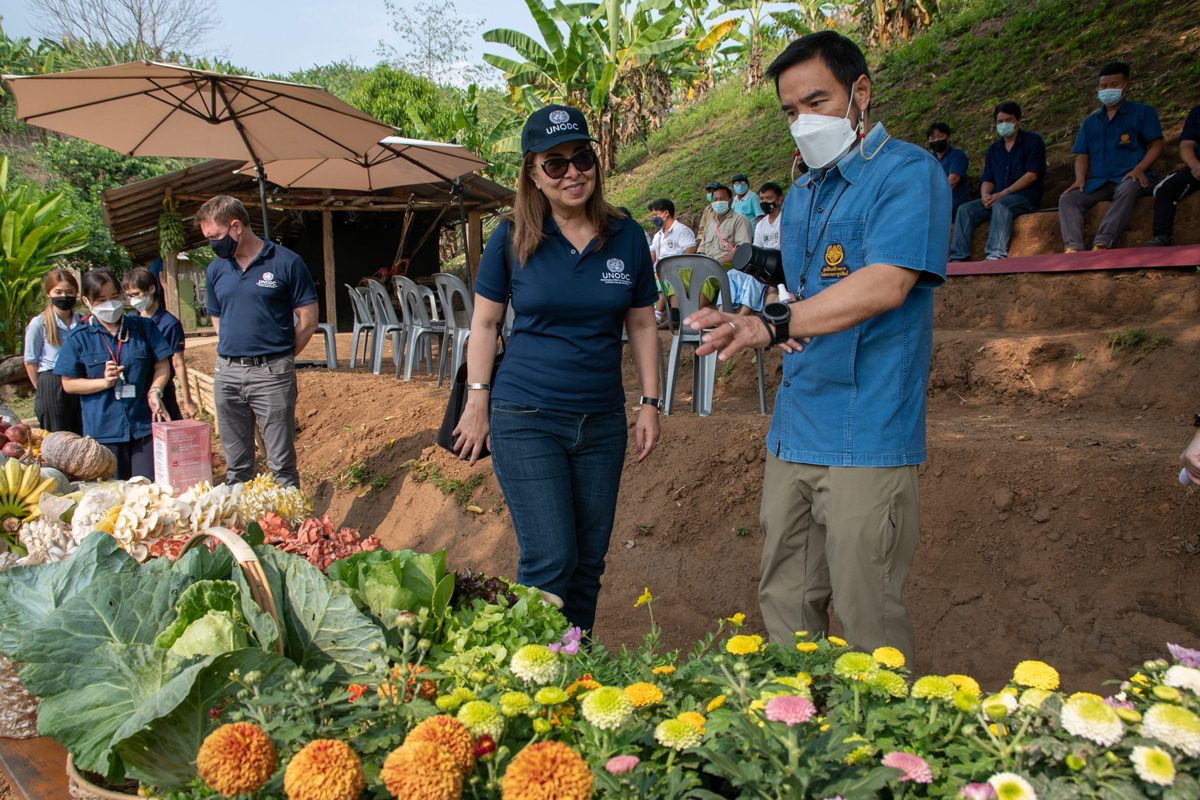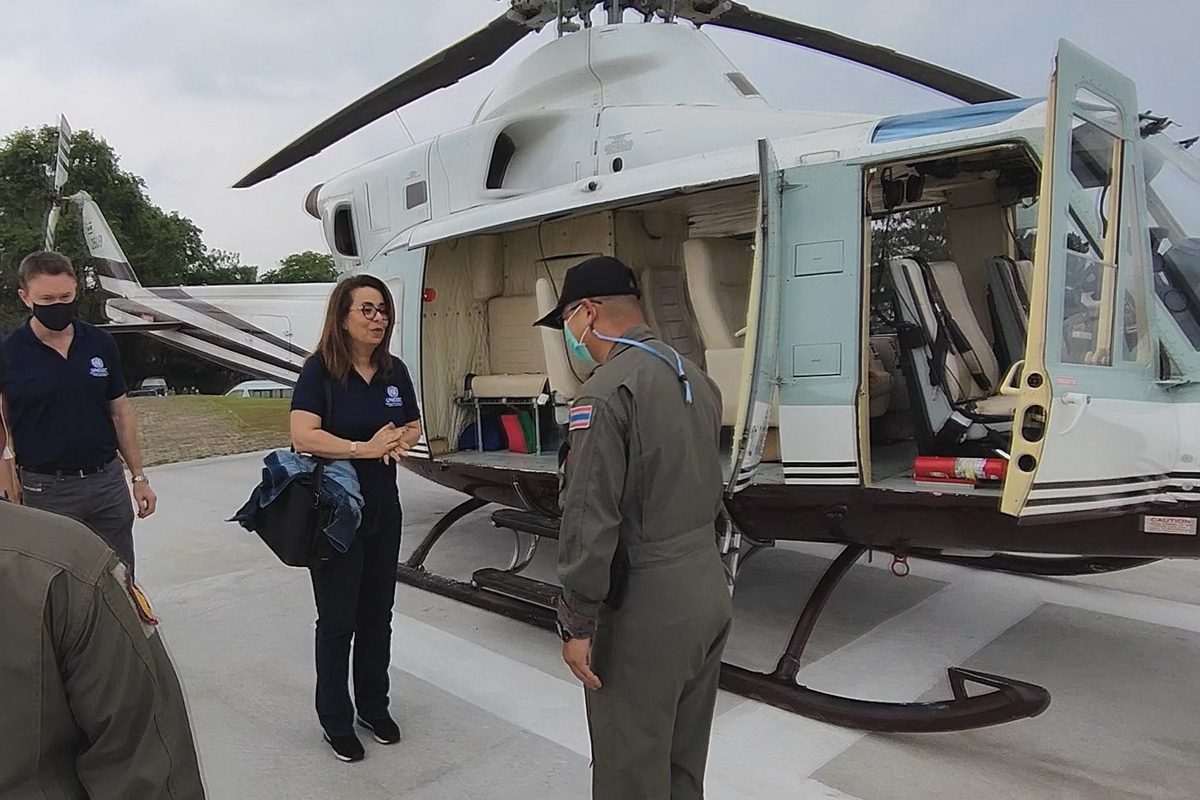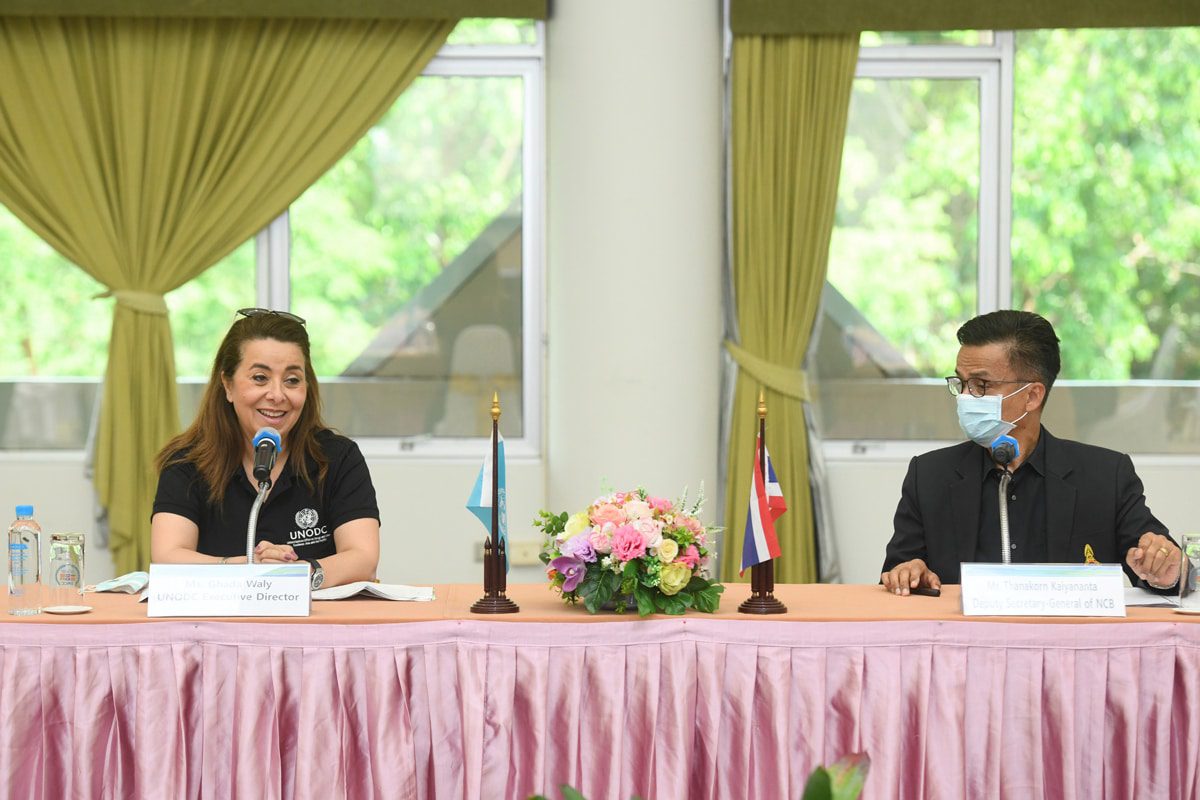
© UNODC
Chiang Rai (Thailand), 4 April 2022 – The so-called Golden Triangle area, bordering Myanmar, Thailand and the Lao People’s Democratic Republic, has historically been a centre of Southeast Asia’s illicit drug economy. In her first mission to the Golden Triangle, Executive Director of the United Nations Office on Drugs and Crime (UNODC) Ghada Waly learned about what Thailand has done, and is doing, in response to the regional drug challenge that might be applied to other parts of the world.
Ms. Waly’s mission to northern Thailand started with a visit to the Mae Fah Luang Foundation in Doi Tung, Chiang Rai Province. For the past four decades, Mae Fah Luang has transformed communities characterized by opium production and insecurity into places with sustainable economies. Interacting with Doi Tung’s community, the Executive Director appreciated learning many lessons and key concepts of the Thai approach to alternative development.

© UNODC
The mission also included a visit to neighbouring Chiang Mai Province and the Roi Jai Rak project, which was conceived as a way to address significant and long-standing problems related to synthetic drug use and trafficking. The Roi Jai Rak project applies traditional alternative development approaches to provide sustainable livelihoods to local communities, community policing, and health services for people who use drugs. Beneficiaries of the project shared their experience with Ms. Waly and discussed the strengths of the approach, lessons to consider for other places, and their hopes for the future.

© UNODC
Thailand also cooperates extensively with other regional partners on law enforcement operations. Executive Director Waly visited the Doi Chang Moob military observation base on the Thailand-Myanmar border with Wichai Chaimongkhon, Secretary-General of the Office for the Narcotics Control Board of Thailand. She met with Thai military officers to discuss the current security situation, and joined the Royal Thai Navy for a patrol on the Mekong river – a key corridor for illicit trafficking – and to learn about border security operations and cooperation.

© UNODC
An important example of UNODC’s cooperation with Thailand is found in the recently-established International Narcotics Control College in Chiang Saen, Chiang Rai Province. Visiting the college, Ms. Waly announced UNODC’s support for it as a regional training hub and centre to assist countries to advance capacities in law enforcement, cross-border cooperation, demand reduction, and health and prevention services, and as a venue to share experiences in alternative development.
Executive Director Waly’s mission reaffirmed UNODC and Thailand’s strong partnership to help address the regional drug problem. Through the newly-launched Regional Programme for Southeast Asia and the Pacific 2022-2026, UNODC will continue supporting Thailand and other regional governments to respond.

© UNODC





